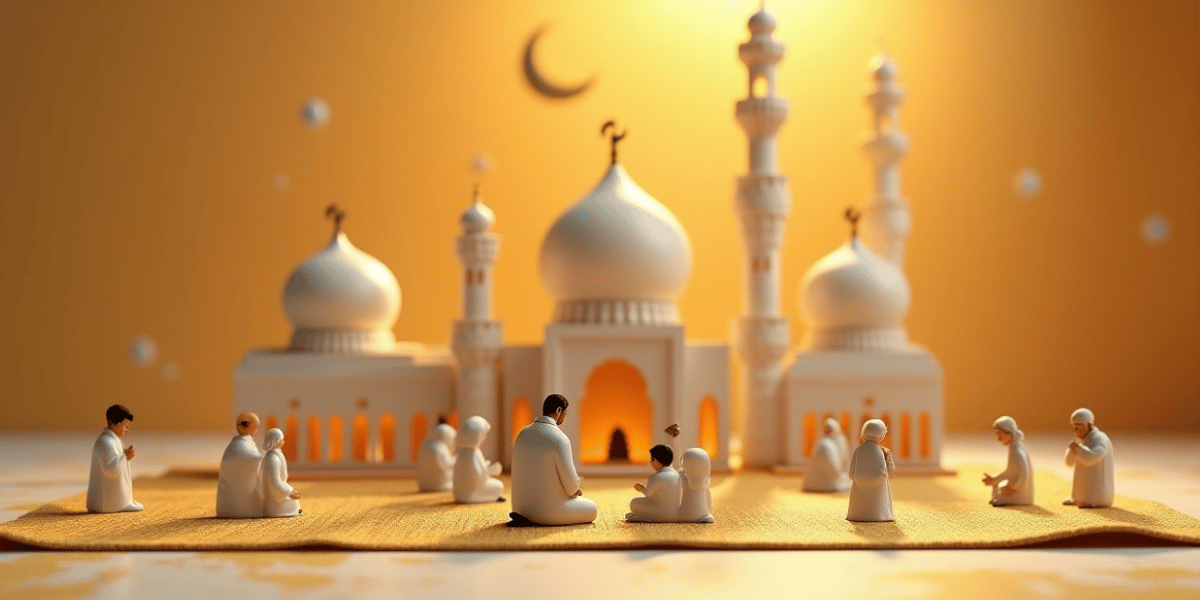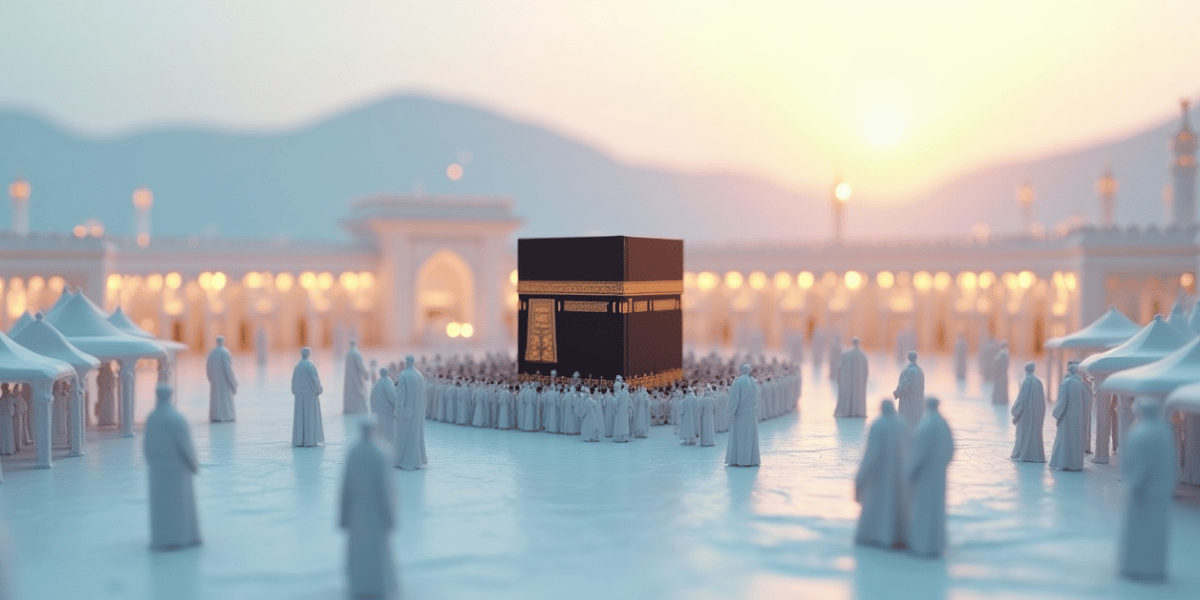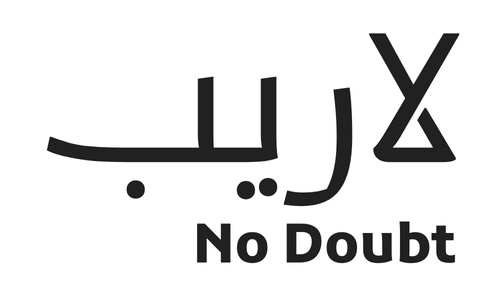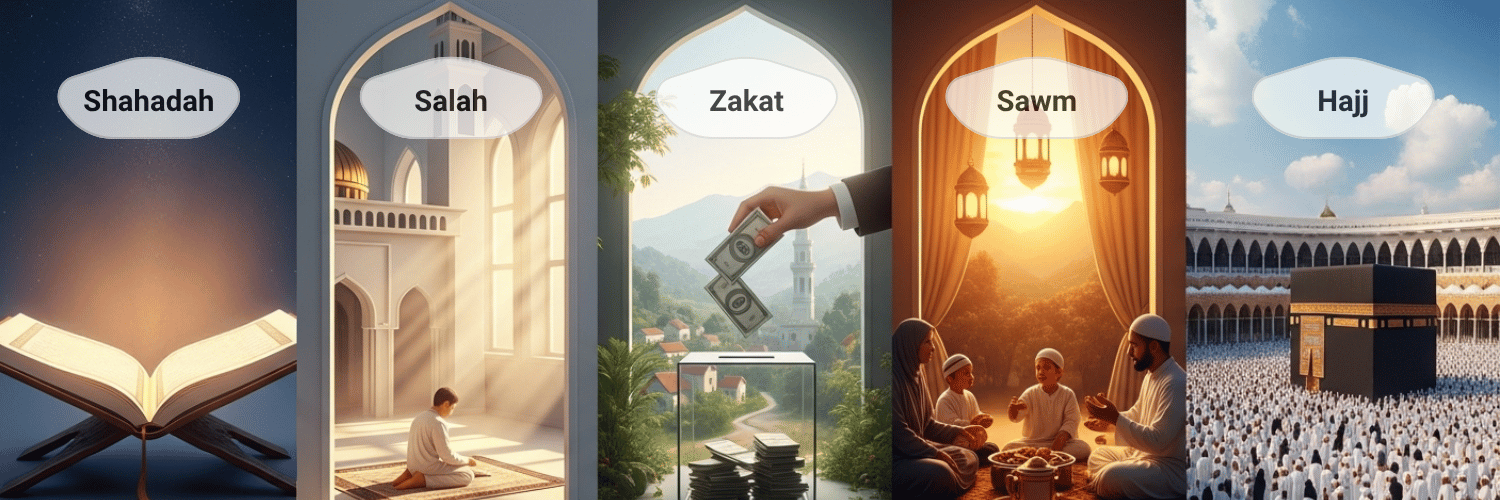The Five Pillars of Islam: Foundations Every Muslim Should Know
بِسْمِ اللهِ الرَّحْمٰنِ الرَّحِيمِ
In the name of God, the Most Gracious, the Most Merciful.
The Five Pillars of Islam are the essential framework of a Muslim’s life, representing the core duties and beliefs that unite our global Ummah. These pillars, Shahadah (The Declaration of Faith), Salah (Prayer), Zakat (Charity), Sawm (Fasting in Ramadan), and Hajj (Pilgrimage to Makkah), are not merely rituals. They are profound acts of worship that shape a believer’s character, strengthen their connection to Allah (SWT), and build a just and compassionate community.
These outward acts are rooted in the inward Pillars of Iman, which shape our beliefs and intentions.
The authority for these pillars comes directly from the teachings of our beloved Prophet Muhammad (صلى الله عليه وسلم), most famously in the Hadith of Jibril, where the angel asked him about Islam. The Prophet (صلى الله عليه وسلم) replied:
“…Islam is to testify that there is no god but Allah and Muhammad is the Messenger of Allah, to establish prayer, to give zakat, to fast Ramadan, and to perform Hajj to the House if you are able to find a way…”
Reference:
– Sahih Muslim 8a, Book 1, hadith 8
This comprehensive guide will walk you through each pillar, explaining its deep spiritual significance and its practical application in our daily lives.
What Are the Pillars of Islam (Arkan al-Islam)
Arkan al-Islam, the Pillars of Islam, are the five fundamental obligations that are mandatory for every Muslim who is able and of sound mind. They are the structural columns that hold up the edifice of a Muslim’s faith and practice. Think of them as the foundation and frame of a house; without them, the structure cannot stand strong. These acts are not designed as burdens, but as a mercy from Allah (SWT) to provide a clear and attainable roadmap for spiritual development.
The Foundation from Qur'an and Sunnah
The five pillars are firmly established in the two primary sources of Islamic law: the Qur’an, the direct word of Allah (SWT), and the Sunnah, the teachings and practices of the Prophet Muhammad (صلى الله عليه وسلم). While the Hadith of Jibril provides a concise list, verses throughout the Qur’an command believers to pray, pay charity, fast, and perform the pilgrimage. This dual foundation in both scripture and prophetic tradition makes the pillars an undeniable and central part of Islamic life.
More Than Just Rituals: A Framework for Life
It is crucial to understand that these pillars are not empty rituals. Each one is a profound act of worship (ibadah) designed to instill God-consciousness (taqwa) and shape every aspect of a believer’s existence. They regulate our relationship with Allah (SWT) and our relationships with fellow human beings, guiding us in our finances, time management, discipline, and sense of community. They are the framework upon which a life of submission and purpose is built.
Key Reflection: The Pillars of Islam provide structure and rhythm to a Muslim’s life, turning everyday existence into an act of worship and remembrance.
The Importance of the Five Pillars in a Muslim's Life
The Five Pillars are the practical application of a Muslim’s faith. They are the visible evidence of one’s commitment to Allah (SWT) and the manifestation of the internal state of belief. Their importance cannot be overstated, as they serve as the primary means of spiritual nourishment and community cohesion.
A Path to Submission and Inner Peace
Each pillar is a step on the path of submission (islam) to the will of Allah (SWT). This submission is not one of weakness, but of profound strength and liberation, freeing oneself from the worship of created things to worship the Creator of all things. This alignment of one’s life with the Divine will is the ultimate source of inner peace (sakinah) and contentment. The pillars are the practical tools Allah (SWT) has given us to achieve this state.
Uniting the Ummah (Community)
The pillars are a source of unity for the global Muslim community (Ummah). Regardless of nationality, race, language, or social status, Muslims around the world face the same direction in prayer, fast during the same month, and perform the same rituals on Hajj. This shared practice creates a powerful bond of brotherhood and sisterhood, reminding us that we are all equal in the sight of our Creator.
Key Reflection: The pillars are not just for individual benefit; they are the threads that weave the fabric of the global Muslim community together.
The First Pillar: Shahadah (The Declaration of Faith)

Shahadah is the very entrance into Islam. It is a solemn declaration from the heart and tongue that “There is no god but Allah, and Muhammad (صلى الله عليه وسلم) is the Messenger of Allah” (لَا إِلٰهَ إِلَّا اللّٰهُ، مُحَمَّدٌ رَسُولُ اللّٰهِ).
The Shahadah is the cornerstone upon which all other pillars are built. It is the verbal declaration and internal belief that there is no deity worthy of worship except Allah, and that Muhammad (صلى الله عليه وسلم) is His final messenger. This simple yet profound statement is the key that unlocks the door to Islam.
Understanding the Meaning of Shahadah
To declare the Shahadah is to testify to the absolute oneness of Allah (SWT) (Tawhid). It is an affirmation that He alone is the Creator, the Sustainer, and the Lawmaker, and that no other being – whether an angel, a prophet, or a saint – shares in His divinity. It is a declaration of liberation from all other forms of servitude.
Read in detail → Seven Conditions of Shahadah.
The Two Testimonies of Faith
The Shahadah consists of two inseparable parts:
- “Ash-hadu an la ilaha ill-Allah” (I bear witness that there is no god but Allah). This negates all false gods and affirms the singular right of Allah to be worshipped.
- “Wa ash-hadu anna Muhammadan Rasool-Allah” (And I bear witness that Muhammad is the Messenger of Allah). This affirms our belief in the Prophet Muhammad (صلى الله عليه وسلم) as the final recipient of divine revelation and our guide in how to practice Islam. One part cannot exist without the other.
Key Reflection: The Shahadah is not just a phrase to be uttered, but a lifelong commitment to live by the principle of God’s oneness and the guidance of His final Messenger (صلى الله عليه وسلم).
Read the full guide → Shahadah (Declaration of Faith)
The Second Pillar: Salah (Formal Prayer)

Salah (prayer) is the central act of daily worship and the second pillar of Islam. It is the spiritual heartbeat of a Muslim’s life, connecting believers directly to Allah SWT throughout the day, regardless of their language, background, or status.
Performed five times a day, it serves as a constant reminder of our purpose in life and a means of seeking guidance, forgiveness, and peace. Allah (SWT) says in the Qur’an, “Indeed, I am Allah. There is no deity except Me, so worship Me and establish prayer for My remembrance.”
(Surah Taha, 20:14).
Understanding the Meaning of Salah
Linguistically, “Salah” means connection, contact, or supplication. It is our daily link to Allah (SWT), a spiritual anchor in the tide of worldly distractions. It involves a beautiful sequence of prescribed physical movements, standing, bowing, prostrating, and sitting, combined with the recitation of verses from the Qur’an and supplications.
The Five Daily Prayers and Their Timing
The five obligatory prayers are spread throughout the day, ensuring that a Muslim’s life revolves around the remembrance of Allah:
- Fajr: The dawn prayer.
- Dhuhr: The midday prayer.
- Asr: The afternoon prayer.
- Maghrib: The sunset prayer.
- Isha: The night prayer.
Each prayer has a specific window of time in which it must be performed, creating a disciplined rhythm for the day.
The Spiritual Benefits of Salah
- Discipline: Builds daily routine, time management, and mindfulness.
- Spiritual Nourishment: Provides regular moments to seek forgiveness, thank Allah SWT, and ask for guidance.
- Community: Congregational prayer (jama‘ah), especially at the mosque, fosters unity and support among Muslims.
Missing Salah?
-
The importance of Salah is such that it should not be intentionally missed. If missed due to forgetfulness or sleep, the prayer should be made up as soon as remembered.
Key Reflection: Salah is a spiritual ascent and a personal audience with Allah (SWT), repeated five times a day to purify the heart and reset one’s spiritual compass.
Learn More About Salah
- How to Pray: New Muslims can start by learning the movements and words step-by-step, with guides available in multiple languages and video tutorials.
- Prayer Times: Use local mosque apps or prayer timetables; there are also many Muslim prayer apps for global travelers.
- Tips for Focus (Khushu‘): Try to pray in a quiet space, reflect on the meanings of what you say, and minimize distractions.
Proofs from Qur’an & Sunnah:
“…Indeed, prayer has been decreed upon the believers a decree of specified times.”
Qur’an 4:103 (Surah An-Nisa’, ayah 103)
“Indeed the first deed by which a servant will be called to account on the Day of Resurrection is his Salah…”
(Jami al-Tirmidhi 413 (hasan-sahih)
The Third Pillar: Zakat (Obligatory Charity)

Zakat is the pillar that purifies wealth and soul, ensuring that the needs of the less fortunate are met. It is not considered “charity” in the sense of a voluntary gift, but rather the due right of the poor upon the wealth of the rich. By giving a calculated portion (typically 2.5%) of one’s surplus wealth annually, a Muslim acknowledges that all wealth truly belongs to Allah (SWT) and is a trust to be used responsibly.
Understanding the Meaning of Zakat
The word “Zakat” carries a dual meaning of “purification” and “growth.” By giving from what we love, we purify our own wealth from greed and miserliness. This act of giving also purifies the heart of the recipient from envy and blesses the giver by causing their remaining wealth to grow in both worldly and spiritual value (barakah).
Purifying Wealth and Soul
Zakat is a practical demonstration of social justice and compassion. It functions as a divine welfare system, creating a flow of wealth from those who have to those who have not. This prevents extreme inequality, fosters social cohesion, and reminds the community of its shared responsibility.
The Qur’an often mentions Zakat immediately after Salah, highlighting its immense importance:
“And establish prayer and give zakat…”
Qur’an 2:43 (Surah Al-Baqarah, ayah 43)
The Qur’an commands:
“And establish prayer and give zakat…
Qur’an 2:110 (Surah Al-Baqarah, ayah 110)
The Prophet Muhammad (صلى الله عليه وسلم) sent Muʿādh to Yemen he said:
“…Teach them that Allah has made Zakat obligatory on their wealth, to be taken from their rich and given to their poor.…”
(Sahih al-Bukhari 1395, Book 24, Hadith 1)
Key Reflection: Zakat is an act of worship that cleanses our possessions, fights greed in our hearts, and builds a compassionate and just society.
The Fourth Pillar: Sawm (Fasting in Ramadan)

Sawm is the act of fasting during the holy month of Ramadan, the ninth month of the Islamic lunar calendar. From dawn until sunset, Muslims abstain from all food, drink, and marital relations. It is a month of intense spiritual focus, self-discipline, and empathy for the poor and hungry.
Allah (SWT) legislated this practice by saying,
“O you who have believed, decreed upon you is fasting as it was decreed upon those before you that you may become righteous”.
Qur’an 2:183 (Surah Al-Baqarah, ayah 183)
The Prophet Muhammad (صلى الله عليه وسلم) said:
“Whoever observes fasts during the month of Ramadan out of sincere faith, and hoping to attain Allah’s rewards, then all his past sins will be forgiven.”
(Sahih al-Bukhari 38, Book 2, Hadith 31)
Understanding the Meaning of Sawm
Fasting is more than just abstaining from physical needs; it is a holistic exercise in self-restraint. A fasting person is also expected to refrain from gossip, arguments, lying, and all other negative behaviors. It is a time to discipline the soul (nafs), curb worldly desires, and focus the heart entirely on the remembrance and worship of Allah (SWT).
A Month of Discipline and Spiritual Growth
Ramadan is a spiritual training ground. By willingly giving up permissible things for the sake of Allah (SWT), a Muslim learns to control their desires and strengthens their willpower to stay away from the impermissible. This month is also characterized by increased prayer, recitation of the Qur’an (especially during the night prayers known as Taraweeh), and giving in charity, making it a time of profound spiritual rejuvenation.
Rules of Fasting
- Time: From the break of true dawn (fajr) to sunset (maghrib) each day of Ramadan.
- Requirements: Adults (post-puberty), sane, physically able.
- Exemptions: The sick, elderly, travelers, pregnant/nursing women, and young children are excused and may make up the fast later or provide fidya (compensation).
What Breaks the Fast?
- Eating or drinking intentionally
- Deliberate vomiting
- Sexual relations during fasting hours
Unintentional acts (e.g., eating by mistake) do not break the fast.
Key Reflection: Sawm is an annual spiritual “reboot” that teaches empathy, strengthens self-control, and allows the soul to feast on the remembrance of Allah (SWT).
For a powerful sunnah fast beyond Ramadan, read about the virtues of fasting on the blessed Day of Ashura.
The Fifth Pillar: Hajj (The Pilgrimage to Makkah)

The Hajj is the pilgrimage to the Kaaba, the sacred House of Allah in the city of Makkah, Saudi Arabia. It is a once-in-a-lifetime obligation for every adult Muslim who is financially and physically able to undertake the journey. Hajj is the ultimate peak of worship, bringing together the spiritual lessons of all the other pillars in one transformative experience.
Allah SWT commands:
“Pilgrimage to the House is a duty owed to Allah by all who can make their way to it…”
Qur’an 3:97 (Surah Aal-‘Imran, ayah 97)
Understanding the Meaning of Hajj
Hajj is a journey of both the body and the soul. Pilgrims from every corner of the world gather in a display of universal unity, shedding all indicators of wealth and status by donning simple white garments (Ihram). This symbolizes that all are equal before Allah (SWT). The rituals of Hajj re-enact the stories of the Prophet Ibrahim (Abraham), his wife Hajar, and their son Ismail, connecting pilgrims to the very roots of their monotheistic faith.
A Spiritual Journey of a Lifetime
Performing the rites of Hajj circling the Kaaba (Tawaf), walking between the hills of Safa and Marwah (Sa’i), standing in prayer on the plain of Arafat is a profoundly moving and spiritually cleansing experience.
The Prophet Muhammad (صلى الله عليه وسلم) said,
“Whoever performs Hajj for Allah’s pleasure and does not have sexual relations with his wife, and does not do evil or sins then he will return (after Hajj free from all sins) as if he were born anew.”
(Sahih al-Bukhari 1521, Book 25, Hadith 9).
It is a symbol of rebirth and a fresh start.
Key Rituals of Hajj
- Ihram: Entering a sacred state with special intention and dress.
- Tawaf: Circling the Ka‘bah seven times.
- Sa‘i: Walking between the hills of Safa and Marwah.
- Standing at Arafat: The heart of Hajj, prayer and supplication.
- Muzdalifah and Mina: Collecting pebbles and staying overnight.
- Stoning the Jamarat: Symbolizing the rejection of evil.
- Sacrifice: Following the tradition of Ibrahim عليه السلام.
- Final Tawaf: Concluding the pilgrimage.
Who Must Perform Hajj?
- Every adult Muslim, male or female, who is physically and financially able, once in their lifetime.
- Those who are unable due to health or finances are excused.
Key Reflection: Hajj is the ultimate demonstration of submission and unity, stripping away the worldly to connect a believer to their Creator and the global Muslim family.
To continue your spiritual renewal after Hajj, see our guide on maximising deeds during the blessed ten days of Dhul Hijjah.
Teaching the Five Pillars to Children
Introducing the Pillars of Islam to children is one of the most important duties of a Muslim parent. It should be done with wisdom, gentleness, and creativity to instill a deep and lasting love for their faith, not a sense of burden. The goal is to connect their hearts to these beautiful acts of worship from a young age.
From Stories to Crafts: Making the Pillars Fun
Children learn best through play and engagement. Instead of dry lectures, use interactive methods:
- Build a Model: Create a model of the Kaaba from a cardboard box for Hajj, or make a mosque with a prayer mat inside.
- Storytelling: Tell them the story of Hajar running between Safa and Marwah, or the story of the Prophet’s (صلى الله عليه وسلم) night journey (Isra wal Mi’raj) to explain the gift of Salah, or the sacrifices of Prophet Ibrahim عليه السلام for Hajj, or the generosity of the Prophet Muhammad (صلى الله عليه وسلم) in giving zakat. Use engaging picture books, bedtime stories, and Islamic cartoons.
- Model: Build a “Pillars of Islam” model using blocks or paper rolls. Color and cut out each pillar, writing a key action (e.g., “Pray Fajr with Dad”).
- Roleplay: Use play money for “zakat” roleplay or create a Ramadan calendar to mark daily fasts.
- Games & Quizzes: Reinforce learning with memory games, word searches, or matching activities focused on the names and order of the pillars.
Parenting by Example: Living the Pillars as a Family
Lead by Example: Ultimately, the most powerful way to teach children is through your own example. Let them see you pray with tranquility. Involve them when you are calculating and giving Zakat, explaining where the money is going. Let them share in the joy of the iftar meal during Ramadan. When children see their parents finding joy and peace in their worship, they will naturally be drawn to it themselves. Make practicing Islam a cherished family activity.
Celebrate Milestones: Mark a child’s first fast, their first time giving zakat (even a small amount), or their first Salah in congregation.
Consistent Encouragement: Praise their efforts, answer their questions patiently, and make learning Islam a positive, loving experience.
Key Reflection: Teach the pillars with love and creativity, and remember that your consistent example is the most influential lesson your child will ever learn.
The Pillars as a Unified Structure
The Five Pillars of Islam are not five separate, independent acts. They are a deeply interconnected and unified system designed to build a complete and balanced Islamic character. Each pillar supports and reinforces the others.
How the Pillars Support and Reinforce Each Other
- The Shahadah is the root. It is the belief that gives meaning to all the other actions.
- Salah is the daily nourishment for the root of Shahadah, strengthening a Muslim’s connection to Allah (SWT) five times a day.
- Zakat purifies the wealth earned through daily life, reminding us that the principles of our faith must extend into our financial dealings. It is the practical application of the compassion learned in prayer.
- Sawm teaches the self-discipline and willpower needed to protect one’s faith and stay committed to Salah and other duties.
- Hajj is the culmination of all pillars it requires the declaration of faith, constant prayer, financial sacrifice, and physical discipline. It is a macro-version of a Muslim’s entire life of submission.
Building a Complete Islamic Character
When practiced with sincerity, the pillars work together to mold a believer. Salah instills punctuality and cleanliness. Zakat instills generosity and empathy. Sawm builds patience and gratitude. Hajj teaches humility and unity. The Shahadah frames all of these with the ultimate purpose: to please Allah (SWT). Together, they form a holistic program for spiritual and ethical development.
Key Reflection: The Pillars of Islam are a brilliant, interconnected system. When one is strengthened, it strengthens all the others, leading to a more complete and beautiful faith.
Conclusion: Living by the Pillars of Islam
The Five Pillars of Islam are a profound gift from Allah (SWT). They are our guide, our support system, and our direct line to the Divine. They are the means by which we translate our love for our Creator into meaningful action, shaping us into individuals who are conscious of God and compassionate towards His creation.
To live by the pillars is to live a life of purpose, structure, and peace. By practicing these pillars with sincerity and understanding, a believer draws closer to Allah SWT, finds balance amidst life’s challenges, and becomes a source of benefit to family, neighbors, and the wider community.
It is to walk a path trodden by all the prophets and to join a global family of believers united in their submission to the One. May Allah (SWT) make us among those who not only understand these pillars but establish them in our lives with sincerity and love until our final day. Ameen.
Download Your Checklist
We have put the essentials on one clear page – fast, pray, dhikr, charity, for you to print or save on your phone.
Frequently Asked Questions - The Pillars of Islam
1. What are the Five Pillars of Islam in order?
The Five Pillars, in order, are:
- Shahadah (Declaration of Faith)
- Salah (Prayer)
- Zakat (Charity)
- Sawm (Fasting in Ramadan)
- Hajj (Pilgrimage to Makkah)
2. Are there more than five pillars in Islam?
The five pillars discussed are the universally agreed-upon foundational acts of worship in Sunni Islam. The core of Islam also includes the six articles of faith (Arkan al-Iman), which deal with belief (Belief in Allah, His Angels, His Books, His Messengers, the Last Day, and Divine Decree). The pillars are the primary actions while the articles are the primary beliefs.
3. What happens if I am unable to perform a pillar?
Islam is a religion of mercy and does not burden a soul beyond its scope. The pillars are obligatory upon those who are able. For example, a person who is sick or traveling may be exempt from fasting. A person who does not meet the minimum financial threshold (nisab) is not required to pay Zakat. The Hajj is only for those who are physically and financially able. Shahadah is required of every sane, accountable Muslim; the remaining pillars become obligatory when their specific conditions (ability, wealth, health) are met.
4. Can I make up for missed prayers or fasts?
Yes, for the majority of scholars, obligatory prayers or fasts that are missed must be made up. Missed fasts from Ramadan should be made up before the next Ramadan arrives. Missed prayers should be made up as soon as possible. It is best to consult a scholar for specific guidance on your situation.
5. Do women have to perform all five pillars?
Yes, the obligations of the five pillars are for both men and women. There are, however, specific concessions for women, such as being exempt from praying and fasting during their menstrual cycle (though they must make up the missed fasts later).
6. What is the difference between Zakat and Sadaqah?
Zakat is the obligatory annual charity that is calculated at a fixed rate on specific types of surplus wealth. It is a pillar of Islam. Sadaqah is any form of voluntary charity given at any time, in any amount. While Sadaqah is highly encouraged and rewarded, it is not a pillar and does not fulfill the obligation of Zakat.
7. Can I perform Hajj for someone else (like a deceased parent)?
Yes, this is known as Hajj al-Badal. According to the majority of scholars, a person can perform Hajj on behalf of someone who has passed away or who is chronically ill and unable to perform it themselves, provided the person performing it has already completed their own obligatory Hajj first.
8. I am a new Muslim. Do I have to start doing everything at once?
Welcome to Islam! The first and most important step is to understand and internalize the Shahadah. Then, you should focus on learning and establishing the five daily prayers. Other pillars like Zakat, Sawm, and Hajj can be learned and implemented as they become applicable to you. The key is to be sincere, consistent, and to learn at a manageable pace without becoming overwhelmed.

